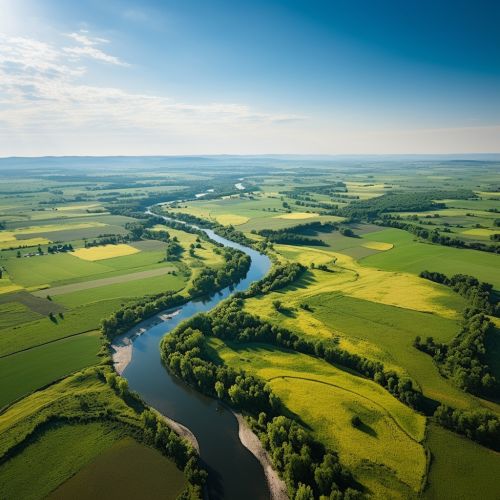Western Polans
Origins
The Western Polans, or Polanie, were a West Slavic tribe inhabiting the Warta River basin in the historic Greater Poland region during the 8th century. The name Polanie itself is a derivation from the Old Slavic word 'pole', which means 'field'. The Western Polans are considered to be part of the Lechitic group, a subgroup of West Slavic tribes that also includes the Masovians, Vistulans, Silesians, and Pomeranians.


Society and Culture
The Western Polans were primarily an agricultural society, with a culture deeply rooted in Slavic traditions. They lived in gords, fortified settlements, which were typically located near the fertile fields they cultivated. Their society was stratified, with the nobility, or the 'wlodarze', ruling over the common people, or the 'chlopi'. The Polans practiced paganism, with a pantheon of gods and spirits that were worshipped in sacred groves and temples.
Political Structure
The political structure of the Western Polans was initially tribal, with the tribe being the primary political unit. The tribe was led by a chieftain, who was chosen from the nobility. However, by the 10th century, the Western Polans had begun to form a state, with the development of a centralized political authority and a more complex administrative system. This process was largely driven by the need to coordinate defense against external threats and to manage the increasing complexity of their society.
Relations with Other Tribes
The Western Polans had a complex relationship with the other Slavic tribes in the region. They were often in conflict with the Pomeranians to the north and the Silesians to the south. However, they also formed alliances with these tribes when faced with external threats, such as the invasions of the Magyars and the Vikings.
Conversion to Christianity
The Western Polans were converted to Christianity in the 10th century by the efforts of Mieszko I, the first historical ruler of Poland. This was a significant event in the history of the Western Polans, as it marked their integration into the Christian world and the beginning of their transformation into the Polish nation.
Legacy
The legacy of the Western Polans is significant, as they are considered to be the progenitors of the Polish nation. Their language, culture, and political structures formed the basis of the Polish state, and their conversion to Christianity played a key role in shaping the religious landscape of Poland.
